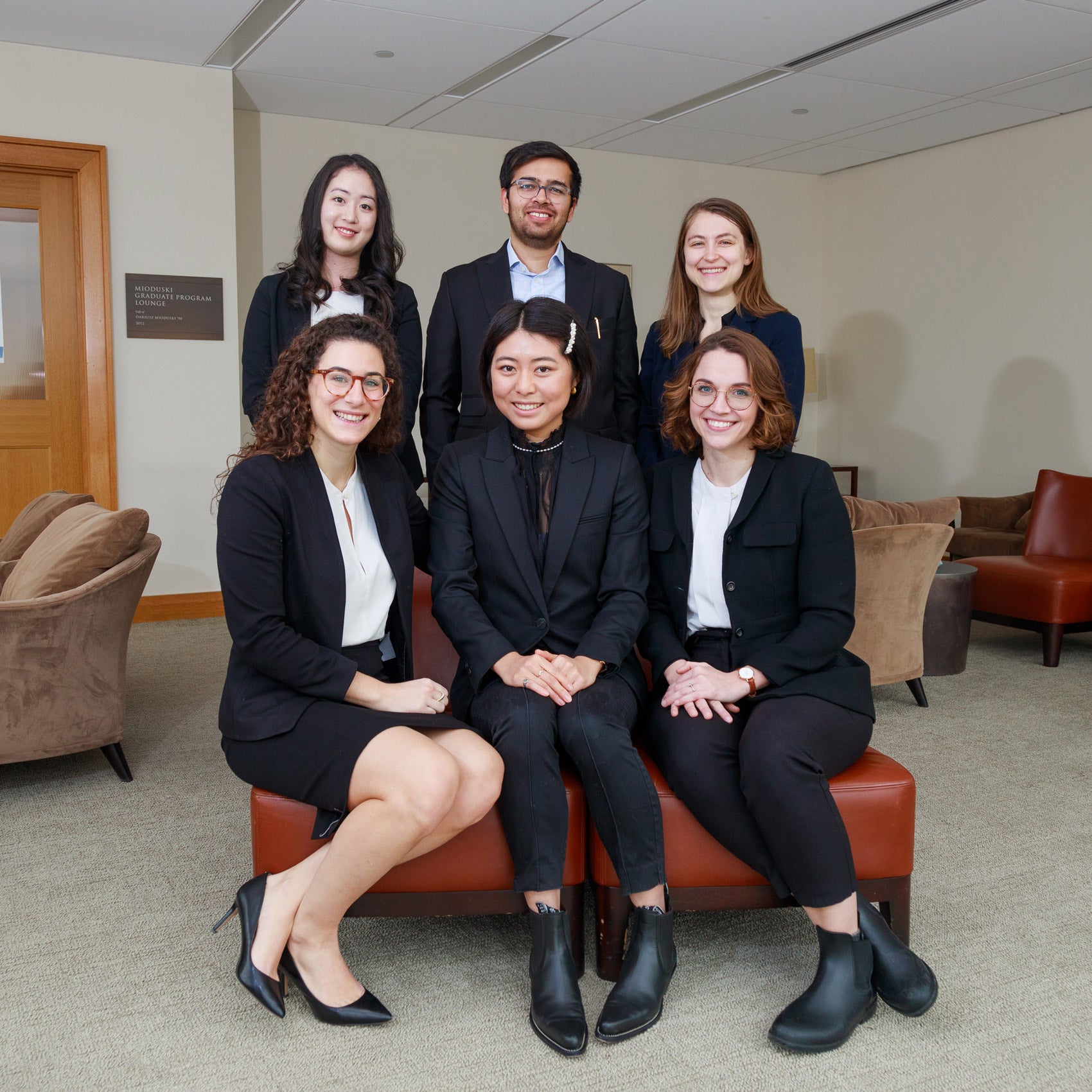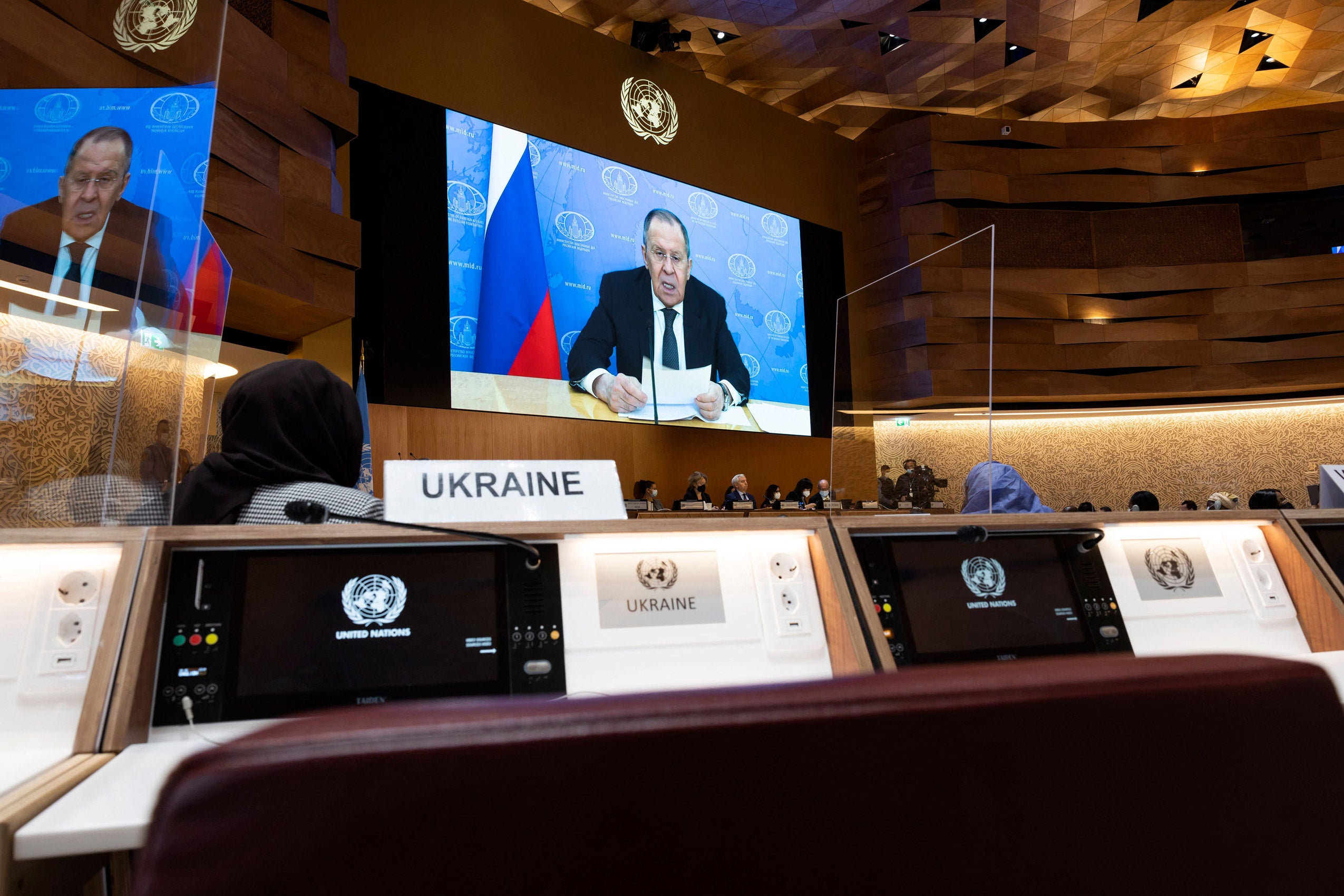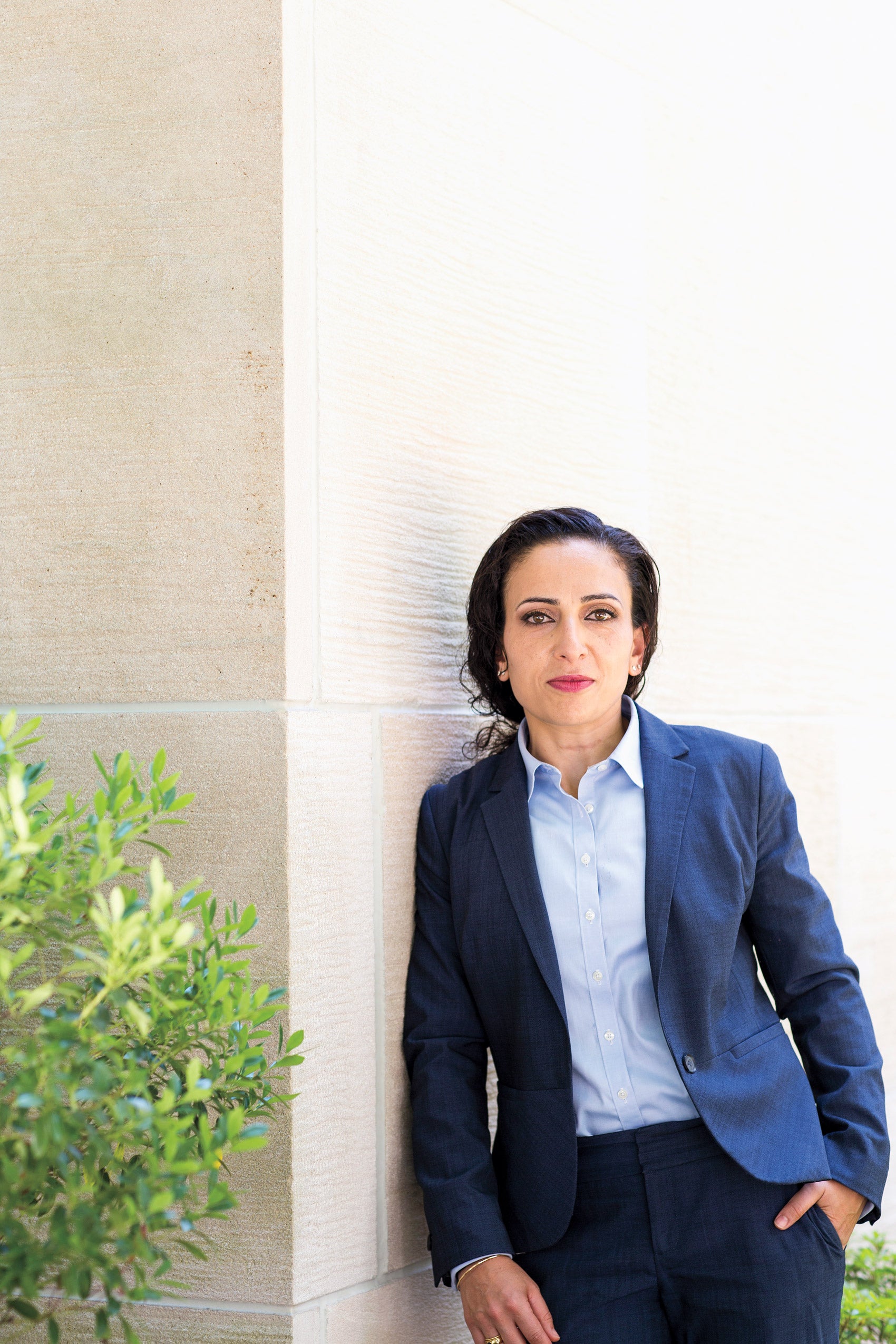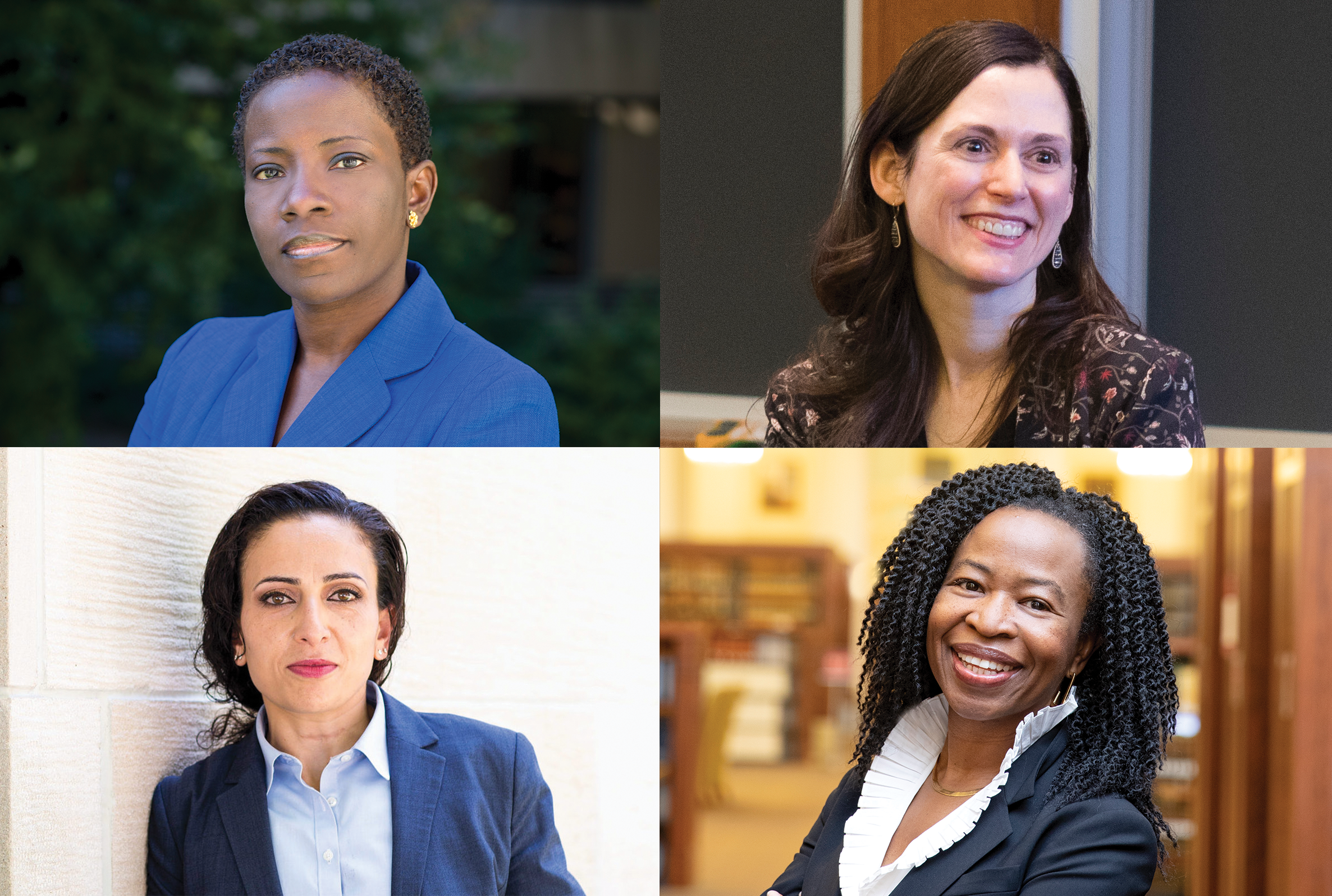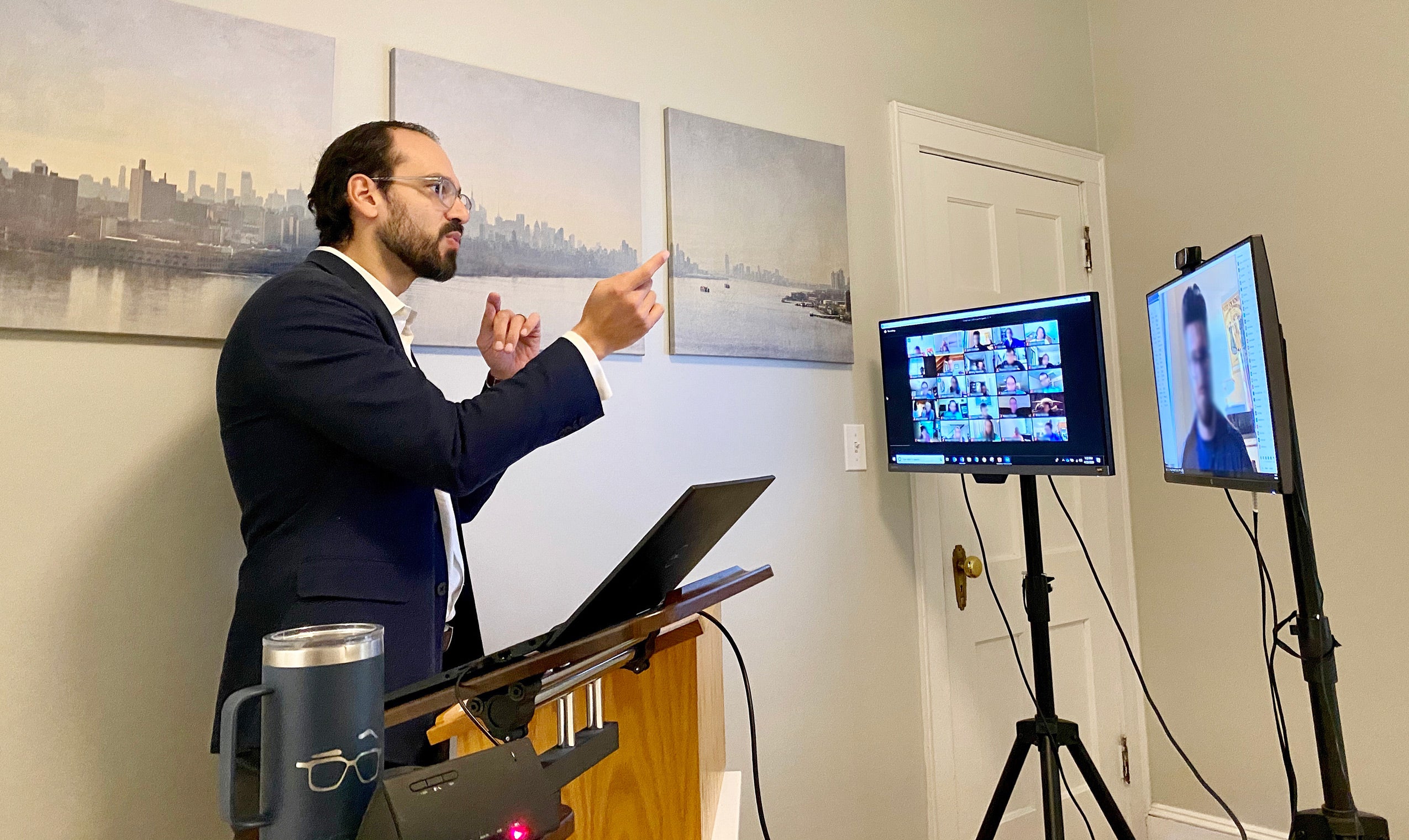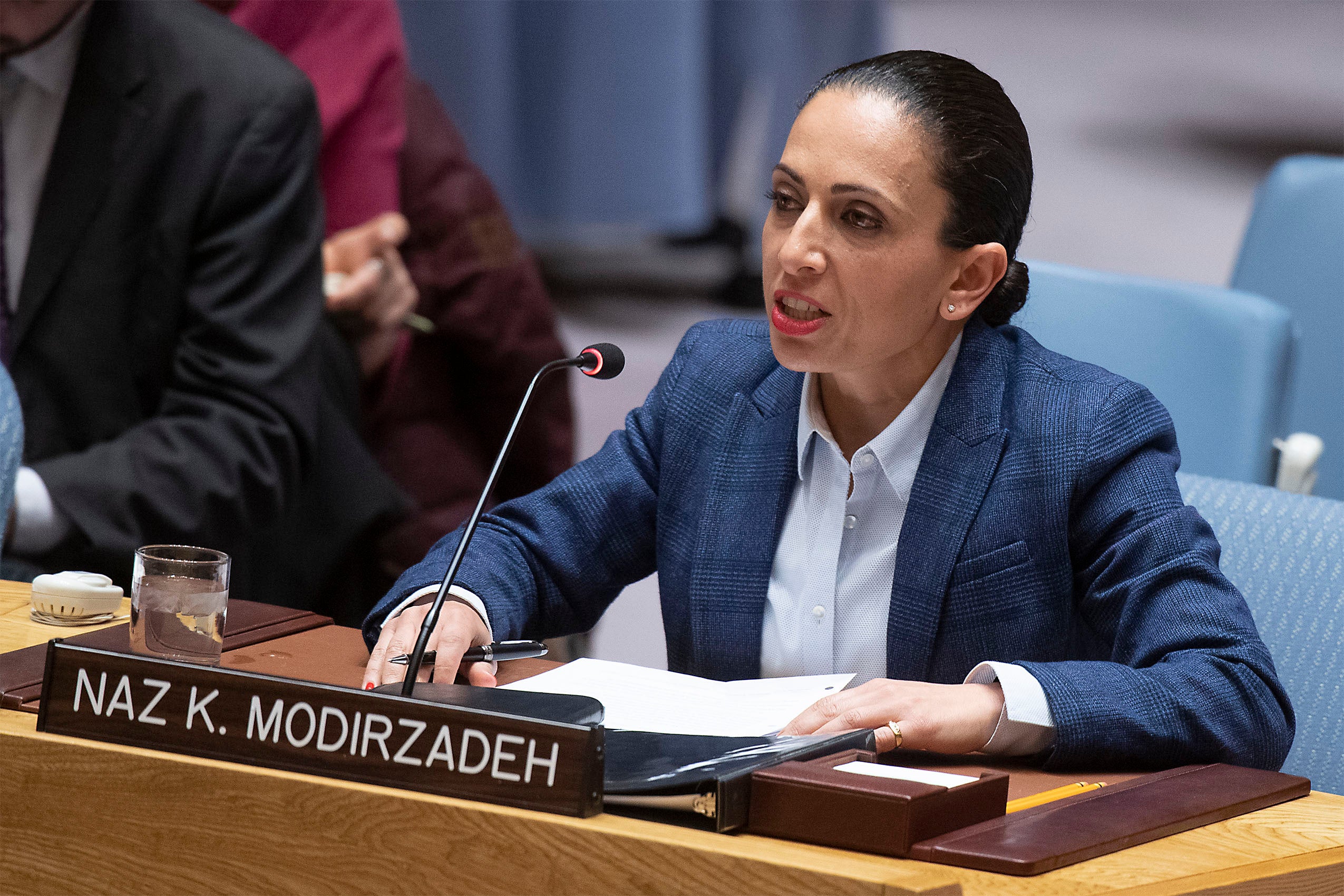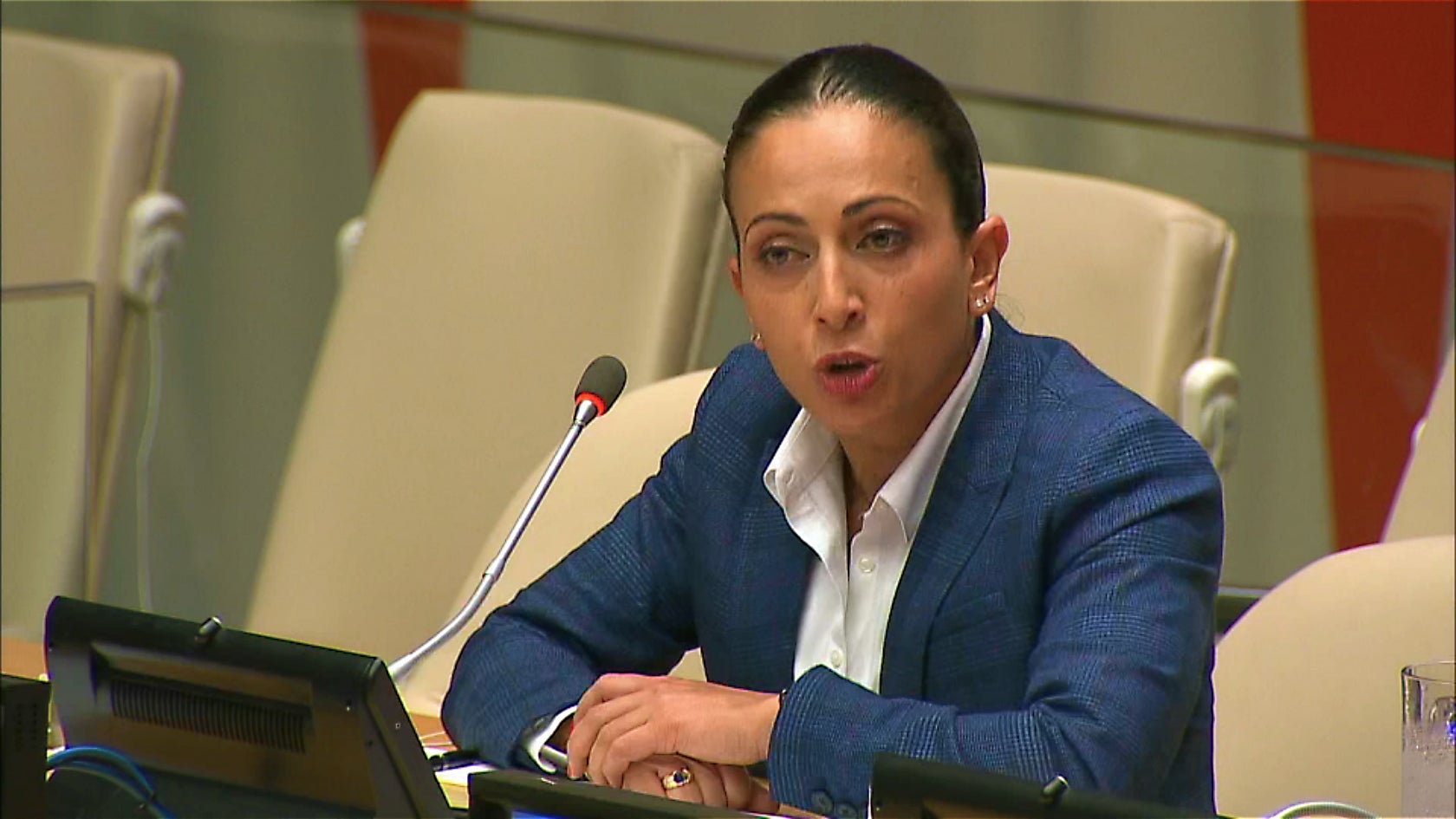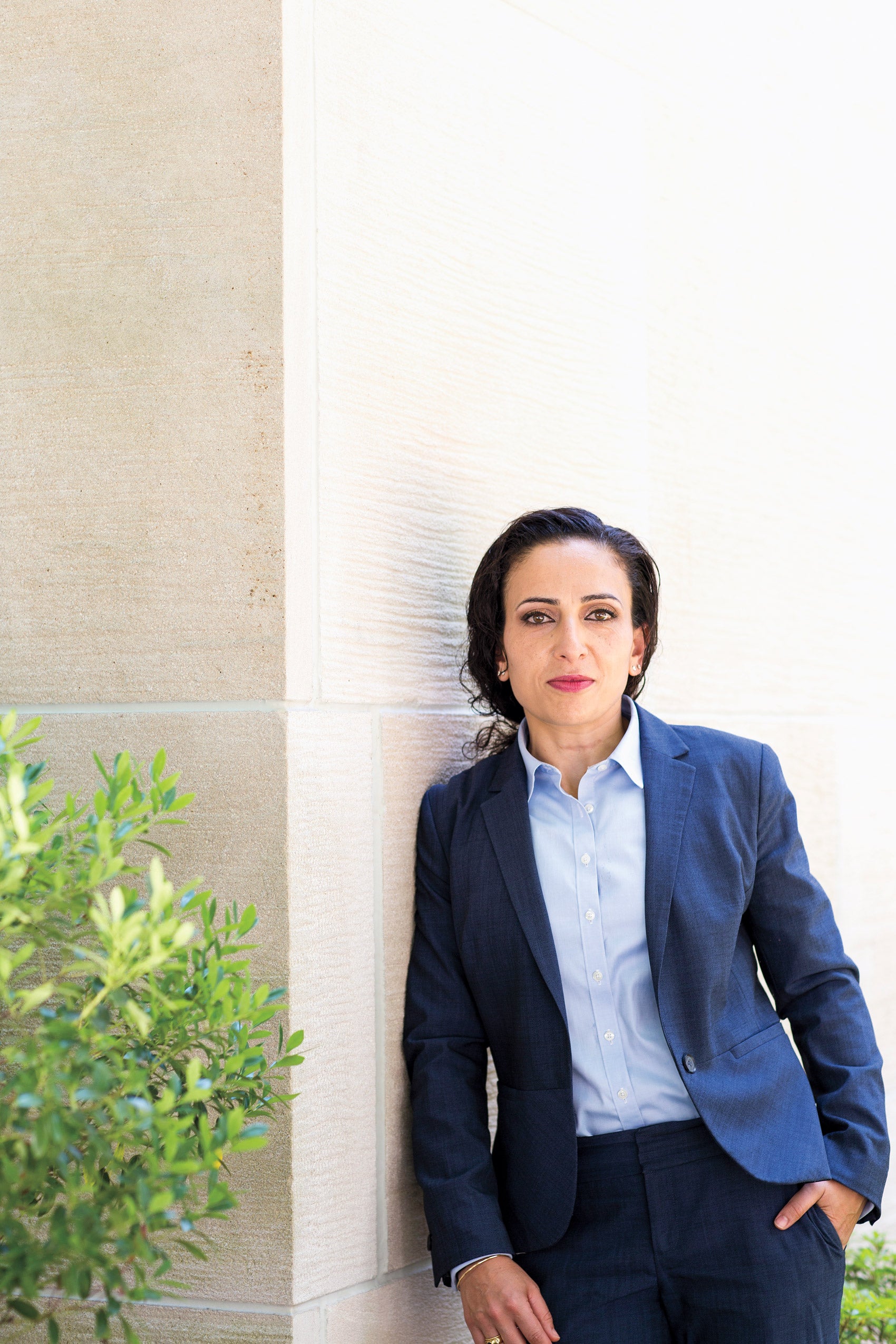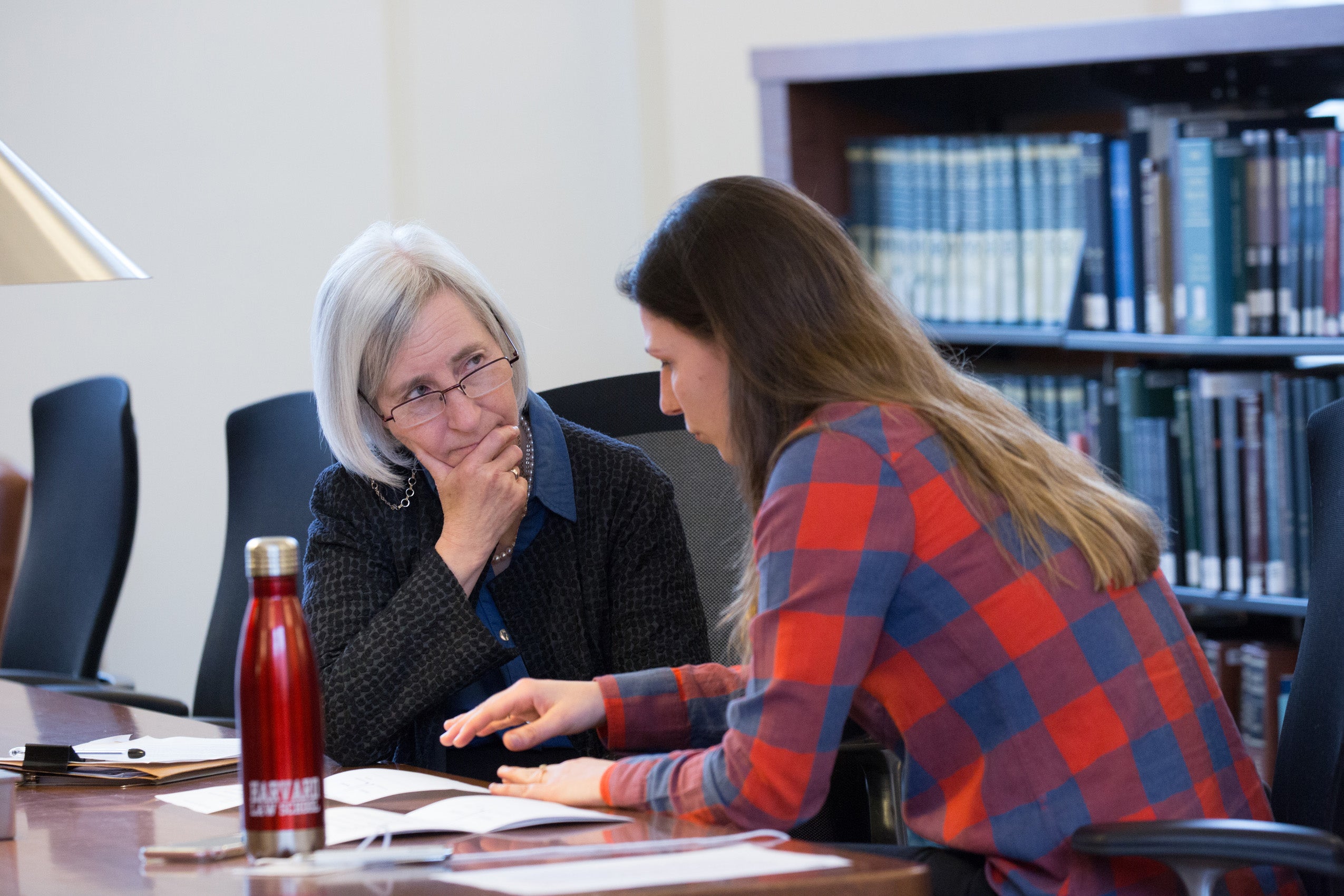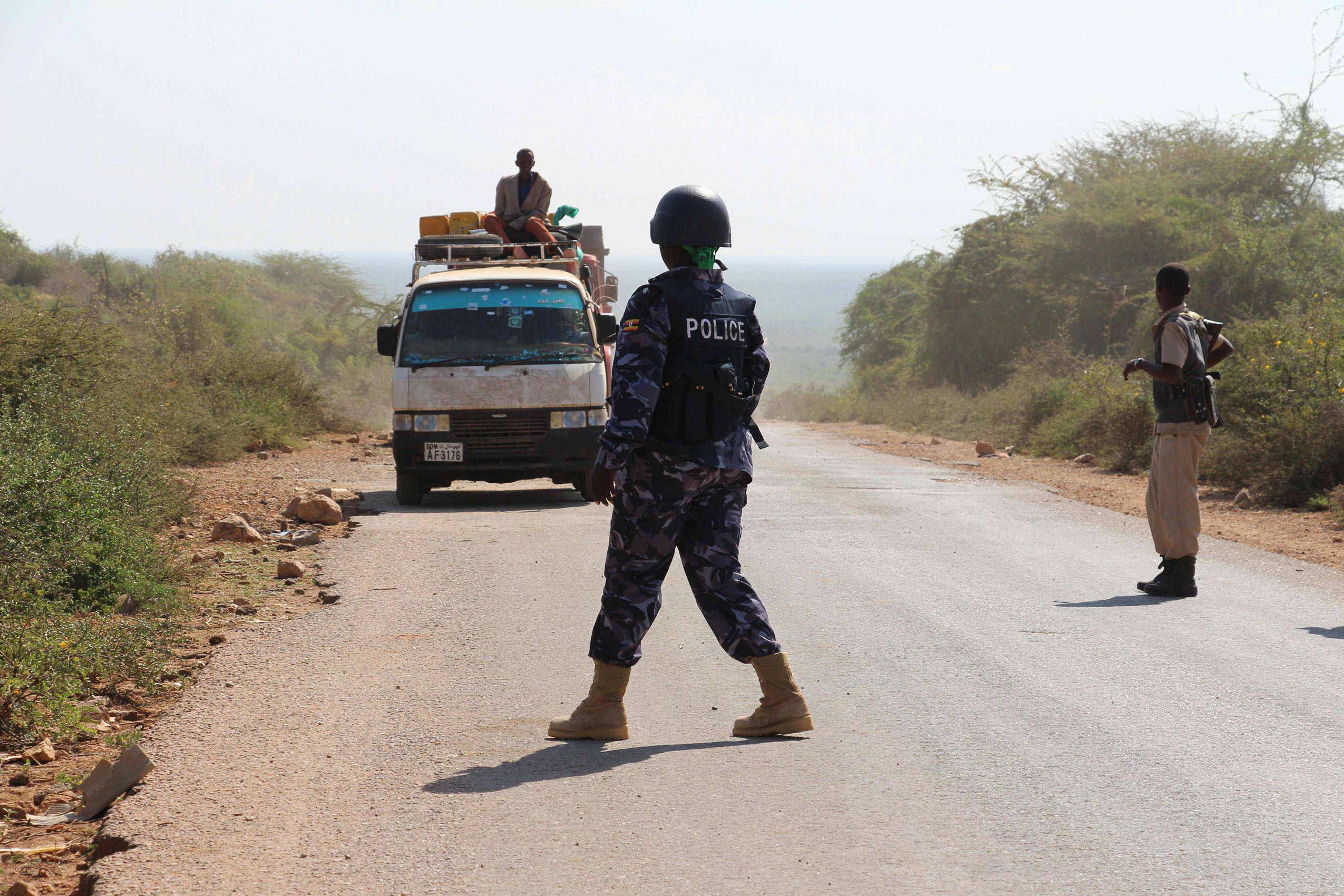People
Naz Modirzadeh
-
The war in Ukraine and international law
March 2, 2022
To understand the implications of Russia's full-scale invasion of Ukraine under international law, Harvard Law Today reached out to Professors Gabriella Blum and Naz K. Modirzadeh, both experts in the laws of war.
-
Reading the law
November 10, 2021
Harvard Law School’s upper-level reading groups give students the opportunity to dig into unique subjects connected directly — or not — to the law.
-
How the US created a world of endless war
August 31, 2021
... For all its routine violence, the American way of war is more and more defined by a near complete immunity from harm for the American side and unprecedented care when it comes to killing people on the other. Today, there are more and more legal obligations to make war more humane – meaning, above all, the aim of minimising collateral harm. ...Written in 2012, the PPG was only publicly released two years later. Harvard Law professor Naz Modirzadeh cuttingly described the document as mixing together a number of “legal-ish” standards. The optics of humane behaviour, Modirzadeh suggested, were “being used to give an international law-like gloss” to “an approach that most allies see as violating” other parts of international law, most of all the rules controlling force.
-
Is The Gulf Dispute Actually Over?
April 20, 2021
This week on Hold Your Fire!, Richard Atwood and Naz Modirzadeh talk to Crisis Group’s Senior Adviser for the Middle East and North Africa, Dina Esfandiary, about what drove Saudi Arabia and the United Arab Emirates, among other Gulf states, to cut diplomatic ties with Qatar in 2017, why the Gulf Arab countries announced an end to the crisis in January 2021 and whether the rift is truly over. They reflect on what this means for the foreign policies of the Gulf Cooperation Council (GCC) countries and how their leaders see their priorities and challenges in the region. They also discuss what the spat has meant for crises across the region where the GCC countries are involved.
-
Modirzadeh briefs UN on self-defense and state silence
March 5, 2021
On Feb. 24, Professor of Practice Naz Modirzadeh ’02, founding director of the Harvard Law School Program on International Law and Armed Conflict (HLS PILAC), briefed a United Nations Security Council Arria-formula meeting convened by the Permanent Mission of Mexico.
-
President Trump’s Off-the-Rails Foreign Policy
October 5, 2020
A podcast by Rob Malley and Naz Modirzadeh: This week on Hold Your Fire!, Rob reminisces about his recent trip to Azerbaijan, where he saw warning signs of a “frozen conflict” ready to thaw. Naz explains why the U.S. might regret trying to designate the Huthis as a terrorist organization if it cares about helping Yemen make peace. They are joined by Aaron Miller, a veteran U.S. diplomat and Carnegie senior fellow, who examines the successes and shortcomings of President Trump’s unconventional diplomacy, and explains how the phrase “nobody ever washes a rental car” applies to conflict prevention.
-
Harvard Law School Professor of Practice Naz Modirzadeh combines levity with earnestness in last lecture to the graduating class.
-
Harvard Law School Last Lecture Series 2020
May 20, 2020
The 2020 Last Lecture Series is an HLS tradition where selected faculty members impart insight, advice, and final words of wisdom to the graduating class. Speakers this year included Dehlia Umunna, Daphna Renan, Ruth Okediji, and Naz Modirzadeh.
-
Zooming in on faculty at home
April 29, 2020
With a little help from their at-home photographers, HLS professors share what teaching classes via Zoom looks like.
-
An article by Dustin Lewis and Naz Modirzadeh: A debate is emerging slowly at the United Nations headquarters: Can and should a counterterrorism body authoritatively and authentically interpret and assess compliance with international humanitarian law (IHL), the principal body of law regulating armed conflicts? At first glance, that debate might seem merely niche or technocratic—one fast-tracked to the annals of international law pedantry. But when viewed in its proper context, the debate raises several concerns that may have cascading effects of great significance. Indeed, how it is ultimately resolved may entail consequences for safeguards for populations ravaged by armed conflict as well as the integrity and coherence of the system of legal protection in war. Along with our co-author, Jessica S. Burniske, we examine these issues in a new briefing for the Harvard Law School Program on International Law and Armed Conflict.
-
Professor of Practice Naz Modirzadeh ’02, founding director of the Harvard Law School Program on International Law and Armed Conflict, spoke before the United Nations Security Council in New York City on April 1 on safeguarding humanitarian assistance in counterterrorism contexts.
-
Recent advances in artificial intelligence have the potential to affect many aspects of our lives in significant and widespread ways. Certain types of machine learning systems—the major focus of recent AI developments—are already pervasive, for example in weather predictions, social media services and search engine results, online recommendation systems. Machine learning is also being applied to complex applications that include predictive policing in law enforcement and ‘advice’ for judges when sentencing in criminal justice. Meanwhile, growing resources are being allocated to developing other AI applications. ...We asked some of the experts to distill—in under 300 words—some of the key issues and concerns that they believe we aren’t thinking enough about now when it comes to the future on AI and armed conflict. ...Naz K. Modirzadeh, Founding Director & Dustin A. Lewis, Senior Researcher, Harvard Law School Program on International Law and Armed Conflict. "Looking to the future of artificial intelligence and armed conflict, those of us concerned about international law should prioritize (among other things) deeply cultivating our own knowledge of the rapidly changing technologies. And we should make that an ongoing commitment. There is a perennial question about subject-matter expertise and the law of armed conflict; consider cyber operations, weaponeering and nuclear technology. When it comes to the increasingly impactful and diverse suite of techniques and technologies labeled ‘AI’, the concern takes on a different magnitude and urgency. That’s in no small part because commentators have assessed that AI has the potential to transform armed conflict—and not just the conduct of hostilities.
-
On the Bookshelf: HLS Library Book Talks, Spring 2018
August 9, 2018
The Harvard Law School Library hosted a series of book talks by HLS authors, with topics including Authoritarianism in America, the Supreme Court of India, and Legal Reasoning and Political Conflict. As part of this ongoing series, faculty authors from various disciplines shared their research and discussed their recently published books with a panel of colleagues and the Harvard Law community.
-
At the UN General Assembly, Modirzadeh discusses protecting health care in armed conflict
October 4, 2017
HLS Professor of Practice Naz K. Modirzadeh ’02 gave a talk at a United Nations General Assembly event on Sept. 22 called, “International Humanitarian Law: Addressing violations in light of recent conflicts,” which focused on failures of international law to protect health care systems in armed conflict in Syria involving designated terrorists.
-
War or Peace?
July 21, 2017
This spring, the Harvard Law Bulletin spoke with Professor of Practice Naz Modirzadeh, founding director of the HLS’ Program on International Law and Armed Conflict (PILAC) and co-author of the report “Indefinite War: Unsettled International Law on the End of Armed Conflict,” about the failure of international law to provide guidance on war’s end.
-
Connecting beyond the classroom
April 21, 2017
More than 60 Harvard Law students and 27 HLS faculty members took over the typically quiet tables of the library reading room for the first “Notes and Comment” event.
-
HLS Program on International Law and Armed Conflict releases report on ‘indefinite’ war
February 27, 2017
The Harvard Law School Program on International Law and Armed Conflict (HLS PILAC) has released a new report titled "Indefinite War: Unsettled International Law on the End of Armed Conflict."
-
Can international law keep up with organized violence?
September 7, 2016
By Gabby Blum LL.M. '01 S.J.D. '03 and Naz Modirzadeh '02: Committed to the notion that international law can play a role in shaping conduct, including in war, the attacks of 9/11 — and the ensuing violence and warfare — have forced us to face the weaknesses of our current legal regimes and address the challenges that they must be able to withstand. Continue Reading »


